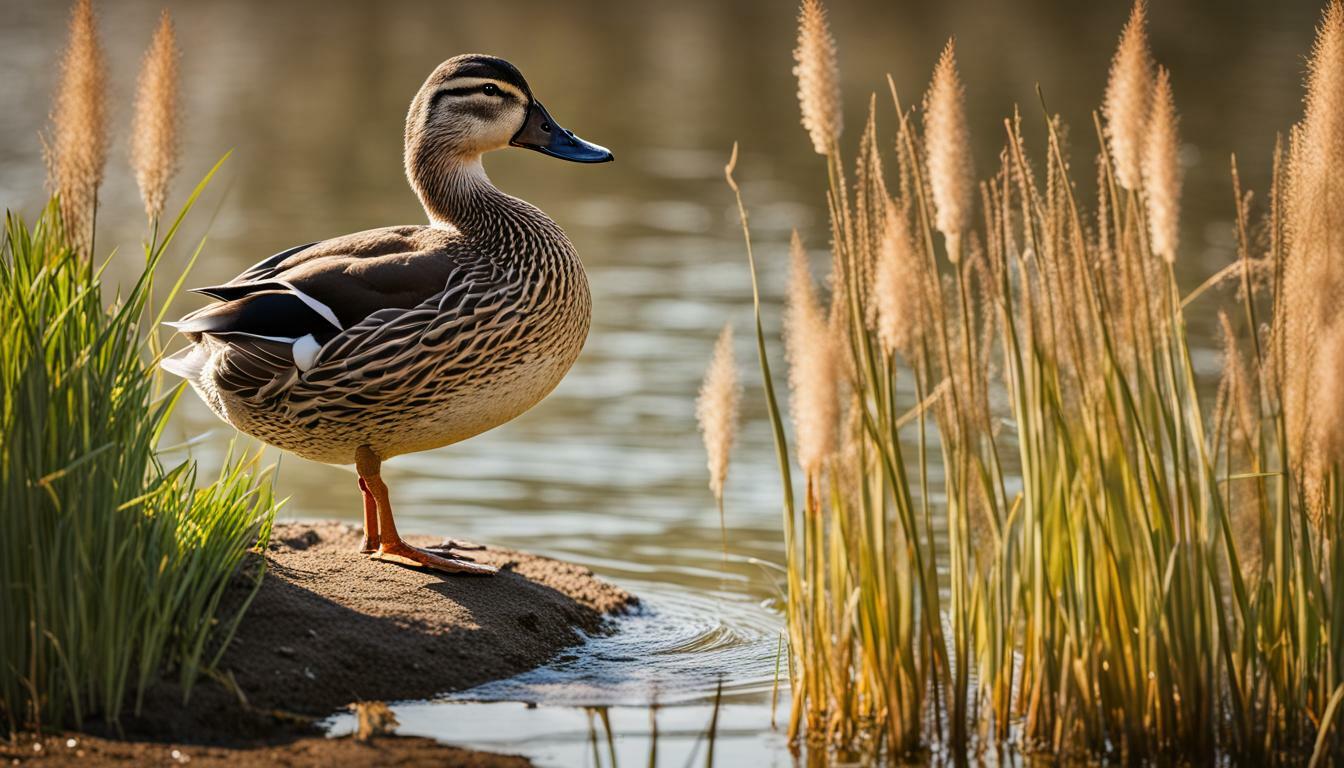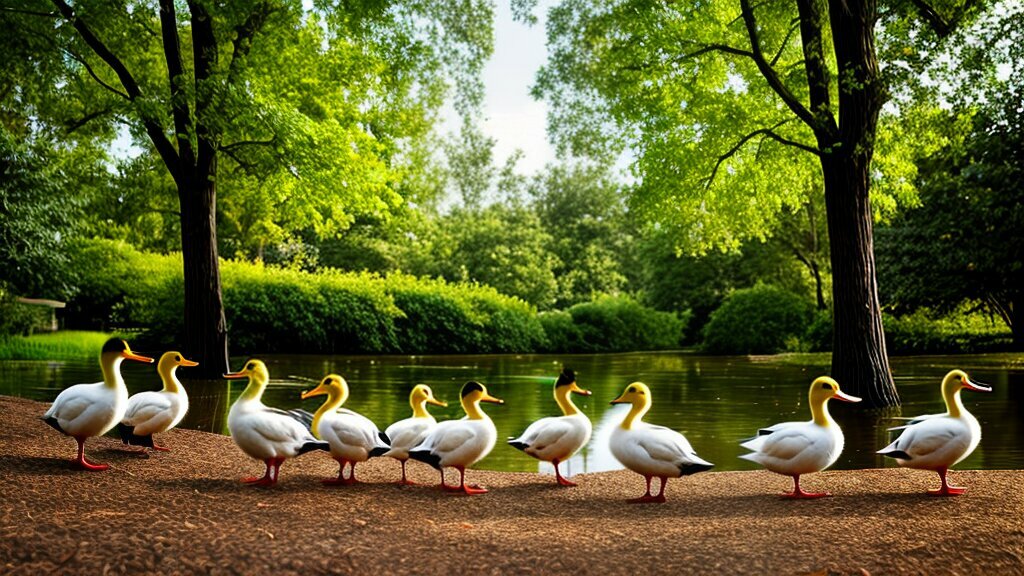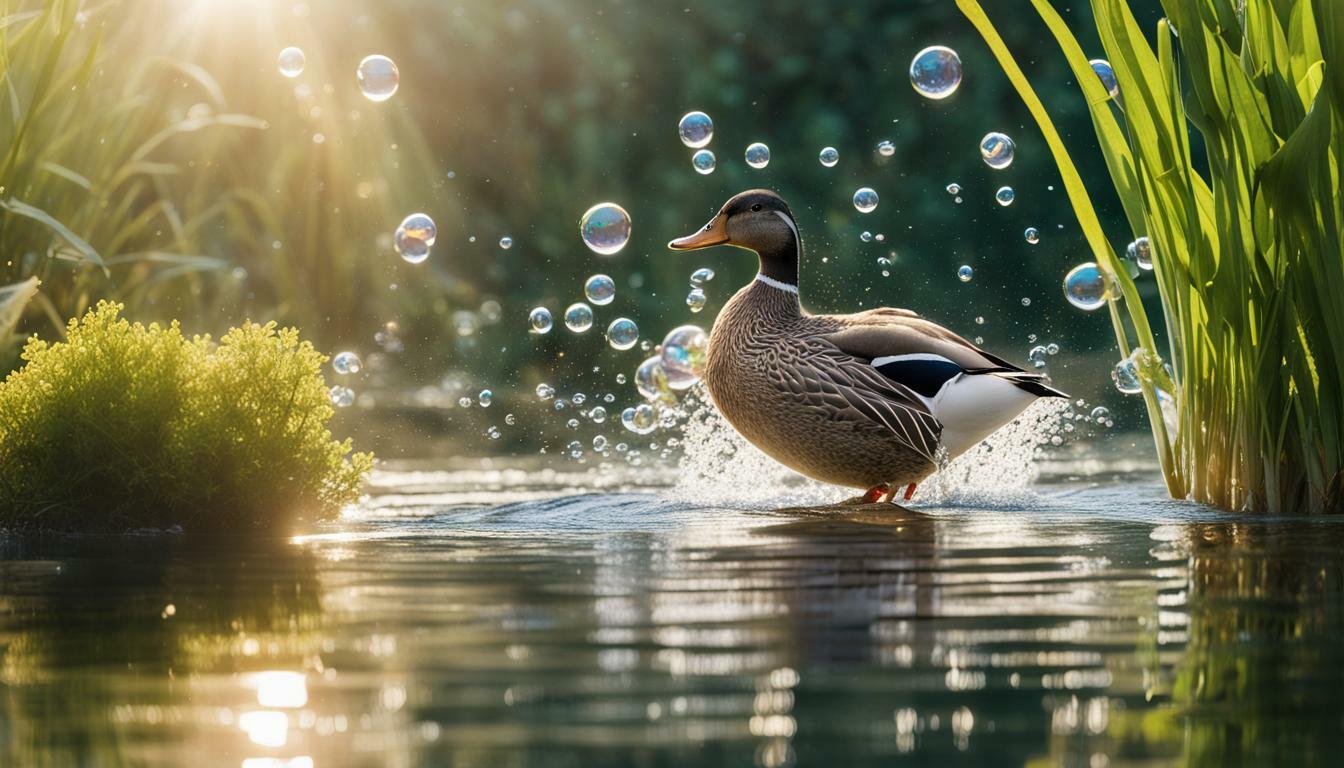Do Ducks Eat Fish In Ponds?

Table of content:
- What Types of Fish do Ducks Eat in Ponds?
- How Often do Ducks Eat Fish from Ponds?
- Do Ducks Only Eat Small Fish in Ponds?
- Do Ducklings Eat Fish in Ponds?
- Can Too Many Ducks Deplete Fish Stocks in Ponds?
- Do Ducks Eat Injured or Dead Fish from Ponds?
- What Time of Day do Ducks Typically Eat Fish in Ponds?
- Conclusion
Ducks are a common sight around ponds and lakes, gracefully gliding across the water and dabbling in the shallows. As omnivorous birds, ducks eat a varied diet including plants, insects, and small fish. But do ducks actively hunt and eat fish in ponds? And if so, what types of fish do they consume?
In this article, we’ll take a deep dive into the ducks and fish dynamic, covering everything you need to know about what fish ducks eat, how often they eat them, and their feeding habits when living on ponds.
Understanding what fish ducks eat and how they catch them provides insight into duck behavior and their interaction with pond ecosystems.
What Types of Fish do Ducks Eat in Ponds?
Ducks are not picky when it comes to fish species. They will eat almost any small fish they can capture and swallow. The most common fish found in ponds that ducks consume include:
- Minnows – Minnows are small, streamlined fish 3-5 inches long that live in schools. Common minnow species in ponds include fathead minnows, golden shiners, and creek chubs, all of which make up a regular part of a duck’s diet.
- Sunfish – Bluegills, pumpkin seeds, and rock bass are examples of small sunfish that ducks readily eat. They rarely exceed 6 inches long, making them manageable for ducks to handle and swallow.
- Perch – Yellow perch is a popular pond fish that becomes prey for ducks. They grow 4 to 10 inches in length.
- Bullheads – Bottom-dwelling bullhead catfish are less common duck prey but may get snatched if they linger near the surface.
- Mosquitofish – These tiny fish are less than 2 inches long but make frequent high-protein snacks for filtering ducks.
The key is fish size. Ducks target smaller fish generally under 6 inches long. Large mature fish are off the menu.
How Often do Ducks Eat Fish from Ponds?
The frequency ducks eat fish depends on the species, time of year, and food availability. During chilly winters when insects and vegetation are scarce, ducks rely more on fish to meet their dietary needs.
Dabbling ducks like mallards are opportunistic feeders rather than avid hunters. They may eat the occasional fish but get most of their nutrition from plants, acorns, and invertebrates. One study found fish made up just 3% of a mallard’s annual diet.
Diving ducks such as lesser scaup may eat fish several times per week when living on a pond. Up to 60% of a scaup’s diet can consist of animal matter, with fish being a major component.
Specialist fish-eating ducks like mergansers may eat several small fish per day. Fish comprise over 90% of a merganser’s food intake. They actively pursue and catch multiple live fish daily.
During spring, all ducks scale back fish consumption to focus on higher-energy foods like aquatic invertebrates to fuel breeding and nesting.
Do Ducks Only Eat Small Fish in Ponds?
Ducks prefer to eat small fish approximately 1 to 6 inches long that can be swallowed whole. Larger fish over 6 inches exceed a duck’s gape width (how wide they can open their bills) and are difficult to maneuver and digest.
Most fish species start life small enough to serve as duckling food before growing too large once mature. However, some fish such as mosquitofish and green sunfish stay diminutive and become lifetime duck prey.
A duck’s bill size and shape also influence what fish it can capture and consume. Mergansers have long serrated bills adapted for holding slippery fish, while shovelers have wide spatulate bills ideal for straining tiny fish like minnows from the water.
Ducks at times catch bigger fish, but these are often injured or already dead individuals. Healthy, alert large fish can typically evade ducks. But large fish do become easier targets once stunned or killed during pond stocking, fish die-offs, or other events.
Do Ducklings Eat Fish in Ponds?
Ducklings begin eating small food items like insects and fish soon after hatching. Their protein needs are high to support rapid growth and development.
In pond settings, tiny fish just an inch long make ideal duckling meals. Small fish are easier for ducklings to catch and swallow. As they grow, juvenile ducks gradually shift to consuming larger fish up to 3 inches long.
Species does influence duckling fish consumption. Ducklings of fish-eating specialists like mergansers likely eat more fish more often than dabbler ducklings.
However, all ducklings eagerly consume fish when available in ponds. Easy access to high-protein fish provides ducklings a boost that may increase their chances of surviving to adulthood.
Can Too Many Ducks Deplete Fish Stocks in Ponds?
A healthy pond should support both a resident duck population and thriving fish community. But extremely high duck densities can potentially impact fish numbers if the ecosystem falls out of balance.
On a well-managed pond, ducks alone won’t decimate the fish population. However, ducks may exacerbate fish loss in ponds already stressed by low oxygen, poor water quality, overcrowding, lack of vegetation, or other issues.
Preventing duck-related fish declines requires proactively maintaining optimal pond conditions. Key steps include:
- Maintain clear water by reducing nutrients and algae.
- Install a pond aerator to improve oxygen circulation.
- Introduce aquatic plants to provide fish shelter and habitat.
- Sustain a balanced predator-prey balance by stocking both game fish and forage fish.
- Avoid overstocking fish.
- Use fish feeders rather than tossing food that can lead to excess waste.
- Discourage large resident duck flocks from establishing by limiting food handouts.
With thoughtful pond management, ducks and fish thrive together. But imbalances can allow ducks to overtax fish populations in distressed ponds.
Do Ducks Eat Injured or Dead Fish from Ponds?
Ducks waste no opportunity for an easy fish meal. Both live and dead fish provide nutrition, so ducks will readily eat deceased fish floating in a pond.
Causes of fish die-offs providing duck food include:
- Winterkill – If ice covers the pond, oxygen levels may drop too low, killing some fish.
- Disease outbreaks – Bacteria, viruses, and parasites can all lead to large fish kills.
- Toxic algae blooms – Some algae species release toxins lethal to fish.
- Pollution runoff – Things like fertilizers, oil, and pesticides can enter ponds via runoff and poison fish.
- Oxygen depletion – Overcrowding, hot weather, and excess decaying matter can cause oxygen crashes.
Ducks scavenging dead or dying fish may help slow the spread of diseases. But the mass meals also concentrate pathogens and raise duck infection risks.
Injured fish exhibiting abnormal behaviors are easy pickings for ducks. And during pond fish stocking events, some fish perish from handling stress, providing ducks a buffet.
While dead fish are not preferred, ducks won’t bypass readily available nutrition. Their opportunistic feeding provides one way ponds self-correct imbalanced fish populations.
What Time of Day do Ducks Typically Eat Fish in Ponds?
Duck feeding activity fluctuates over a 24-hour period. Their fish consumption often coincides with when fish are most catchable.
Fish become sluggish and move into shallow warmer water early and late in the day. Low light conditions also make it harder for fish to spot ducks approaching from above.
As a result, ducks frequently feed most actively at dawn and dusk when fish are slow and concentrated in easy reach along the pond margins.
Throughout the night, some fish even become inactive and rest on the bottom. Nocturnal feeding ducks like northern shovelers consume more fish during overnight hours.
Conversely, fish are most alert and active during daylight hours. This makes them harder for ducks to catch. So fish feeding tends to dip when the sun is high, despite ducks being active.
In general, crepuscular and nocturnal feeding provide ducks their best success catching fish. But feeding patterns always depend on individual duck behaviors and preferences.
Conclusion
Ducks are certainly capable of catching and eating live fish from ponds. But fish make up a relatively modest portion of most ducks’ diets. Only the most specialized piscivorous species rely on fish as their primary food source.
Ducks prefer small fish 1 to 6 inches long that can be swallowed whole. While all ducks opportunistically consume dead or dying fish, actively hunting live fish happens inconsistently. Fish feeding is often highest under low light conditions when prey is most vulnerable.
Ultimately, a balanced pond ecosystem can provide for both healthy duck and fish populations. With proper habitat and management, ducks and fish can thrive together while adding diversity and interest to the pond environment. Their dynamic relationship helps sustain both species while creating a miniature diverse wetland.
Welcome. I’m Adreena Shanum, the proud owner of this website, and I am incredibly passionate about animals, especially poultry. I founded adreenapets.com as a labor of love, stemming from my desire to share my knowledge and experiences with poultry enthusiasts worldwide.




